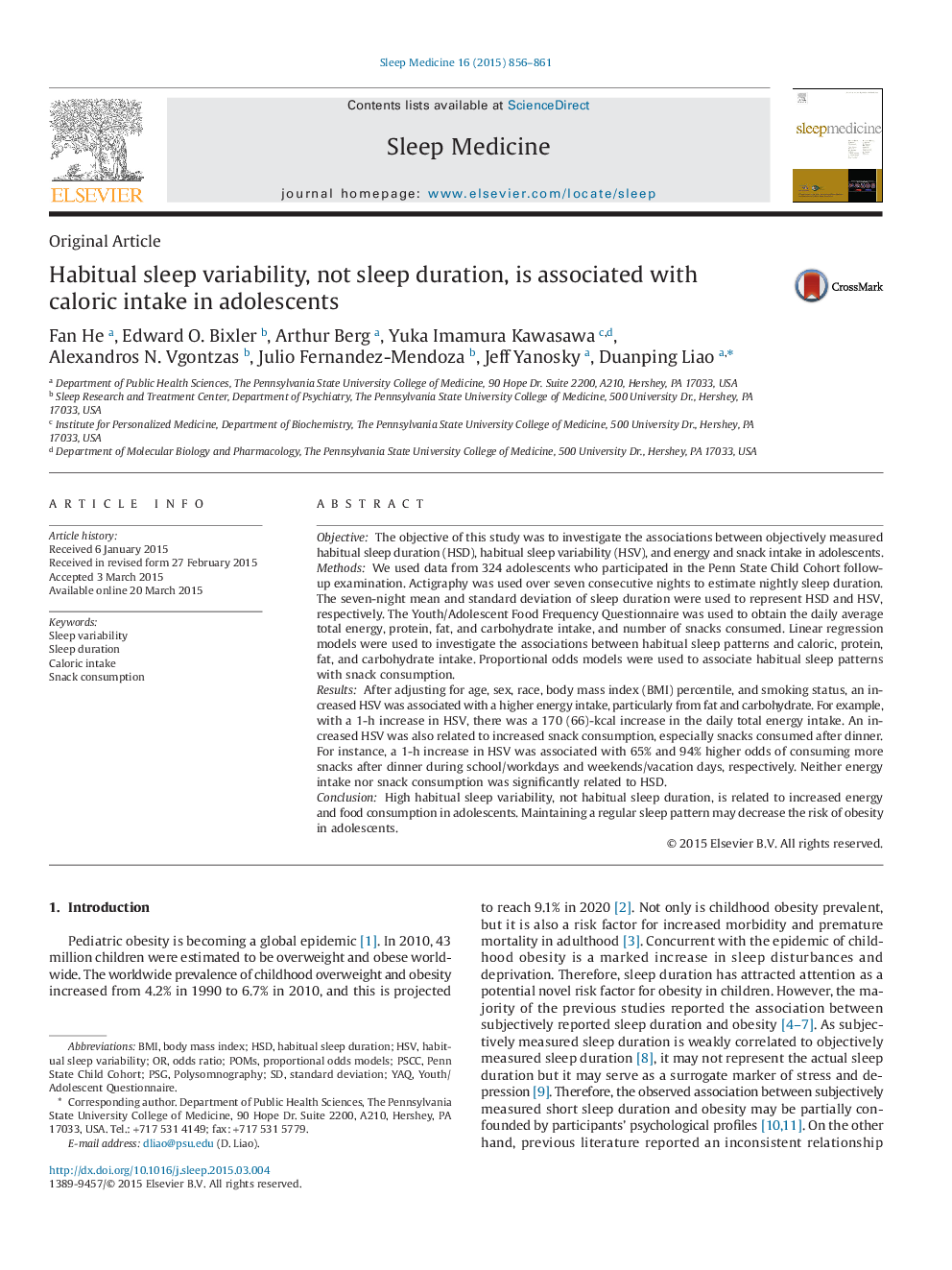| کد مقاله | کد نشریه | سال انتشار | مقاله انگلیسی | نسخه تمام متن |
|---|---|---|---|---|
| 6060679 | 1200235 | 2015 | 6 صفحه PDF | دانلود رایگان |
- The association between sleep pattern and energy intake in adolescents is unclear.
- Habitual sleep duration is not associated with caloric intake or food consumption.
- High sleep variability is related to higher energy intake and snack consumption.
- Maintaining a regular sleep pattern may reduce the risk of obesity in adolescents.
ObjectiveThe objective of this study was to investigate the associations between objectively measured habitual sleep duration (HSD), habitual sleep variability (HSV), and energy and snack intake in adolescents.MethodsWe used data from 324 adolescents who participated in the Penn State Child Cohort follow-up examination. Actigraphy was used over seven consecutive nights to estimate nightly sleep duration. The seven-night mean and standard deviation of sleep duration were used to represent HSD and HSV, respectively. The Youth/Adolescent Food Frequency Questionnaire was used to obtain the daily average total energy, protein, fat, and carbohydrate intake, and number of snacks consumed. Linear regression models were used to investigate the associations between habitual sleep patterns and caloric, protein, fat, and carbohydrate intake. Proportional odds models were used to associate habitual sleep patterns with snack consumption.ResultsAfter adjusting for age, sex, race, body mass index (BMI) percentile, and smoking status, an increased HSV was associated with a higher energy intake, particularly from fat and carbohydrate. For example, with a 1-h increase in HSV, there was a 170 (66)-kcal increase in the daily total energy intake. An increased HSV was also related to increased snack consumption, especially snacks consumed after dinner. For instance, a 1-h increase in HSV was associated with 65% and 94% higher odds of consuming more snacks after dinner during school/workdays and weekends/vacation days, respectively. Neither energy intake nor snack consumption was significantly related to HSD.ConclusionHigh habitual sleep variability, not habitual sleep duration, is related to increased energy and food consumption in adolescents. Maintaining a regular sleep pattern may decrease the risk of obesity in adolescents.
Journal: Sleep Medicine - Volume 16, Issue 7, July 2015, Pages 856-861
